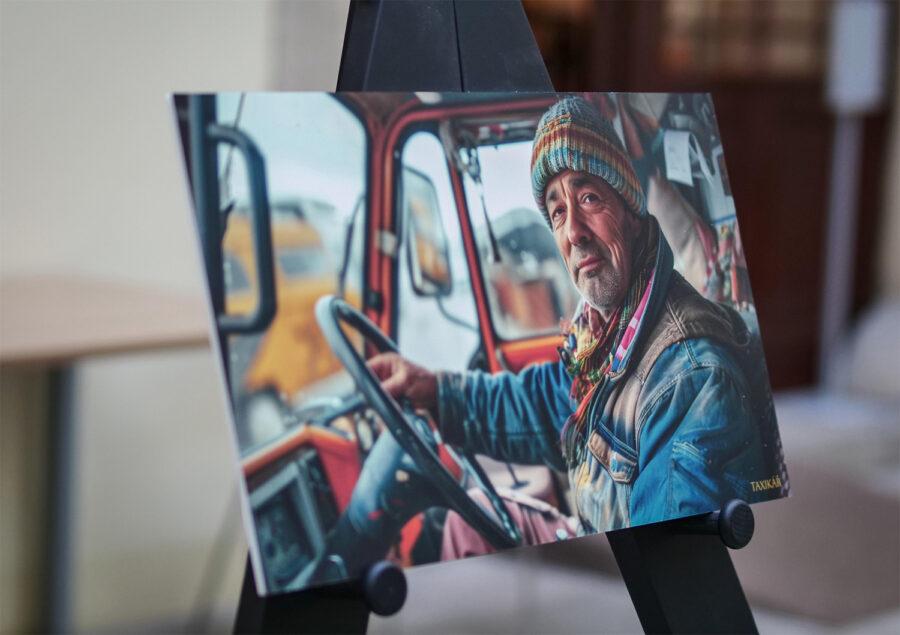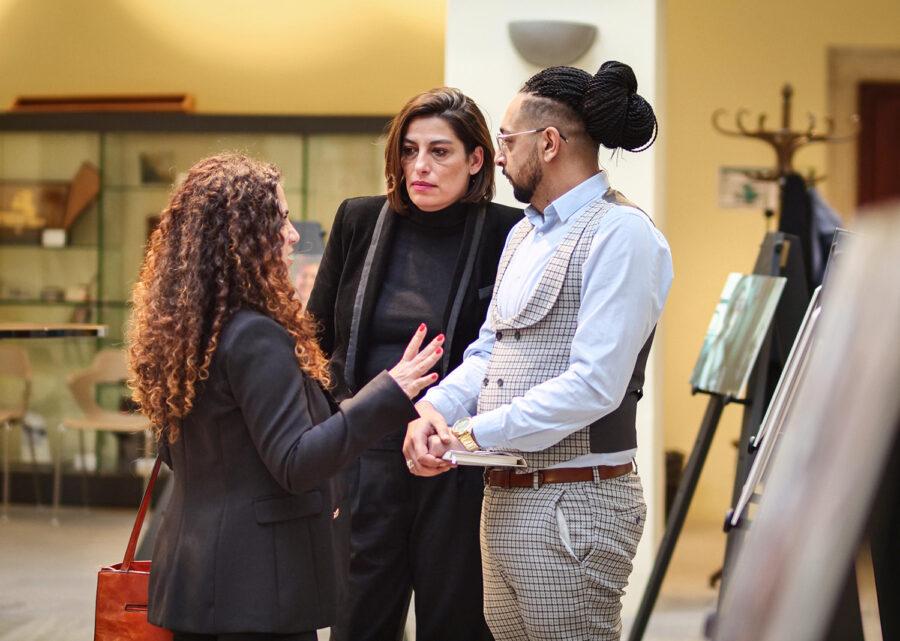RECORDING: Panel discussion on "The Roma in Democracy" in the Chamber of Deputies of the Czech Parliament
On 10 April an event called "The Roma in Democracy" was held in the Chamber of Deputies of the Parliament of the Czech Republic. The press conference about the event was broadcast live by news server Romea.cz on the day.
Based on an agreement with the organizers who volunteered their time to hold this event, news server Romea.cz is also making available the full official recording of this meeting, which was held under the auspices of the President of the Chamber of Deputies of the Parliament of the Czech Republic Markéta Pekarová Adamová and Czech MP Jiří Navrátil. Navrátil’s office aided the organizers with holding the event, providing them with assistance and backup.
“We wanted this event to be filmed and we are releasing the film for transparency so anybody who wants to can hear what we said and what we criticized,” journalist Jarmila Balážová, one of the main organizers (the others are Edita Stejskalova and David Tišer), told news server Romea.cz. The organizers opened their first panel of the day with an explanation of when and why the initiative to hold this discussion arose and was organized.
Title photograph: The panel discussion “The Roma in Democracy”, 10 April 2024 (PHOTO: Milan Mottl, Chamber of Deputies of the Parliament of the Czech Republic)
“When, in July 2023, Senators Němcová and Čunek made anti-Romani remarks dishonoring Romani people in relation to their work, Emil Voráč and Jan Čonka set up a Facebook group and called on Romani people to send in photographs of themselves at work, reprising the campaign organized some years ago by Štefan Pongo,” Balážová said, adding that they wanted to hold an exhibition of those photographs at the Chamber of Deputies. “We wanted to aid this effort even if each of us is already overwhelmed with work. We spent two and a half months calling each other in the evenings and organizing this event. We wanted it to be held at the level of a panel discussion during which expert, proficient professionals who are Romani would present their critical observations and recommendations directly to members of the lower house and to senators, and we also wanted Romani people to be able to attend this event who have been doing their best to correct this situation in various areas for the last 30 years and who are frustrated by developments,” explained Balážová, who co-moderated the event with Tišer.
The event had two parts: A panel discussion and then the opening of an exhibition created from the photographs solicited by Emil Voráč and Jan Čonka in collaboration with David Tišer. It was Tišer who gave the exhibition its artistic form, based on an artificial intelligence program generating images using certain keywords related to Romani work.
“It seemed humiliating to me to just show, through photographs, that we Romani people also work. So we have shown another part of the stereotypes which exist about us in the form of imagery,” Tišer, who among other things covered the cost of producing the exhibition, told Romea.cz.
Everything else involved with the event was also voluntarily produced. The exhibition will be on view until 19 April.

After Balážová opened the discussion, the President of the Chamber of Deputies, Markéta Pekarová Adamová, explained why she had given her auspices to this activity, answering the question of what politicians in particular owe to the Roma when it comes to how they are perceived and their position. Czech MP Navrátil then answered that same question and explained his patronage of the event.
The next panel featured four experts on various areas which influence the lives and positions of Romani people in a fundamental way. Political scientist Edita Stejskalová spoke about income poverty among Czech citizens and how it could pave the way for autocracy, clientelism and corruption.
“In my contribution I wanted to recommend solutions in the area of employment policy and income for citizens of the Czech Republic with the aim of protecting our democratic principles and the rule of law. Using the examples of Romani people, I described these problems. For example, with the aid of facts, I refuted the highly dangerous stereotypes taken advantage of by politicians. The public and employers, without any doubt, are of the opinion that Romani people do not work and never will,” said Stejskalová, adding that this explains the experience of the 74 % of Romani people who encounter discrimination during job interviews and the 48 % of employed Romani people who encounter discrimination in the workplace in the Czech Republic, according to research by the Fundamental Rights Agency.
“Those are alarming numbers. Most Romani people work in branches and professions for which below-average wages are typical. The average Romani wage ranges from between CZK 130 and CZK 170 [EUR 5 – EUR 6.70] per hour. For the last 30 years the price of Romani labor has not risen despite any price rises or inflation,” said Stejskalová.
“What does that mean? A significant part of the productive-age Romani people who work do not have enough money, for example, to cover the costs of their children studying,” Stejskalová said.
In her view, the state must thoroughly prosecute discrimination, either through high fines or by banning discriminatory employers from conducting their business operations. “The society-wide problem of citizens being overindebted also has to be addressed seriously. I have already made many more such proposals,” Stejskalová clarified to Romea.cz.

The next panelists scheduled were the psychologist Monika Mihaličková and the attorney Pavla Krejčí, who wanted to point out the need for changes to electoral law on the basis of specific examples of the use of hate during election campaigns and their impact on both Romani people and on Czech society. “Ultimately, Monika Mihaličková was unable to attend because of an illness, which we greatly regret, but the attorney Pavla Krejčí, who has been involved with the subject of Czech electoral law for 10 years and has filed many complaints about elections (for example, against the local elections in Most and Kladno), managed to give her colleague’s presentation,” said Balážová, whose own presentation pointed to several specific remarks by politicians and constitutional officials which have negatively influenced public opinion about Romani people and thereby impacted their everyday lives.
The journalist also reminded those present of the loopholes in existing legislation, for example, regarding the position of the Public Defender of Rights, the office holder of which is de facto unable to be dismissed from that position before the expiration of his or her term. “The anti-Romani campaigns of the current holder of that office therefore remain unpunished,” Balážová said.
The next speaker, Ingrid Kosová, an MP in the National Assembly of the Republic of Slovakia and member of the leadership of the Progressive Slovakia party, spoke about the need for Romani people to influence, as elected, expert, proficient lawmakers, the creation and the form of laws, as well as as to cultivate both the political and public environments, revealing why Slovakia currently has six Romani legislators. The panel closed with representatives of the clubs in the lower house responding to the comments and questions posed by Stejskalová and the other panelists as well as from the audience.
In conclusion, the panelists formulated their recommendations, especially with regard to the areas of employment, the media and politics.